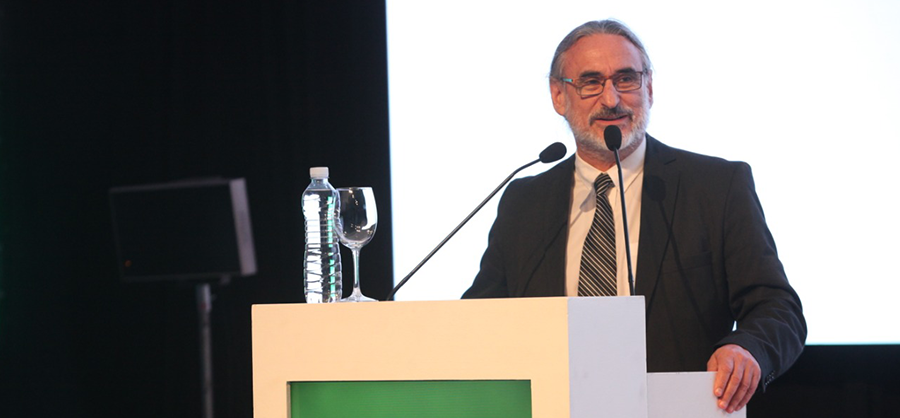Public-private interaction is paramount
Luis Basterra was present at ALASA 2020.
The Argentine Minister of Agriculture, Luis Basterra, was present at the XVI ALASA Latin American Congress, which took place from March 9 to 12 in the city of Mendoza.
Asked about the main challenges of agricultural insurance today, Basterra said that “the transfer of risk in agricultural production is a central issue. Too much time has passed in history in which a single actor has to take care of the conditions. In this sense, I value ALASA as an instance of taking responsibility for this issue and public-private interaction, since we are as a society facing a situation of impact of the effects of climate change. ”
For the representative of the agricultural portfolio, public-private interaction is essential. “The concept of a contradiction between public sector decisions and private sector decisions must be banished. We are in times of searching for spaces like this, of debate, of agreements and of consensus. The world is complicated and we have to be aware that it is necessary to take dimension of the acute international crisis, ”said Basterra. And he added “All of us who are linked to agricultural production must have the responsibility to do so with criteria of sustainability, respect for the environment and human health. It is a question that affects us all. ”
The legal framework in agricultural activity is also of vital importance when it comes to talking about production and sustainability. “Society is taking a level of consciousness and it is important that we have a guarantee of legal certainty when we do agricultural activities. And for this security framework to exist, we have to provide information and demonstrate that we do things well and, at the same time, develop models that are productive that aim progressively to demonstrate to society that we do so with sustainability criteria. This probably cannot be measured as an agricultural risk yet, but it is very important to keep in mind that a judge’s decision can have much more impact than the effect of hail or dry weather when an activity is prevented from taking place. carried out correctly ”explained the Minister.
Regarding the Emergency Law, Basterra was very critical and affirmed that it is a law that must be reformed. “It is a law that, in addition to being inopportune, is not fair in the way it arrives, it solves practically nothing, and there are many public resources that do not comply in order to resolve a contingency caused by climate action,” he emphasized and reiterated the need for public and private sector interaction. ” The public-private articulation is very important since it is defining so that we can build public policies. It cannot be built from the vision of one as a public official only or from the private sectorial vision ”.
The Argentine official also referred to another of the central themes of the Congress such as disruptive technologies and their importance for the agricultural sector. “The technologies that exist today, from satellite technology, work with drones, overflights to identify lots, see the evolution of crops, allow us to see a large number of alternatives so that whoever wishes to take the risk can be the one to receive that transfer that It will be good for the stability of the agricultural company “. And added “This in a system of a lot of information and transparency is going to allow a new game to be played where the actors can each play their role.”
“This is the creativity that we have to put in, we have to look for how insurers, who live by imagining the possibilities that someone may assume the risk, get the producer to move forward until transferring it. More instruments need to be developed to make them accessible. Awareness is still far away As a national state, we are committed to deepening this issue, since we understand that it is one of the elements that most complicates production, requiring greater stability in an activity that has variability, ”he stated.
Finally, Luis Basterra listed the challenges ahead for the Argentine government in agriculture. “We aspire to continue growing in production, to have production with producers, that it is not a business only for some, leaving small producers on the way, that the risk of prices and environmental irrigation is tempered, that the transfer system of irrigation and that we can have much more production that is based on the development of work, distribution of wealth, and that we can think of an Argentina with very great progress ahead ”.






Comments are closed.